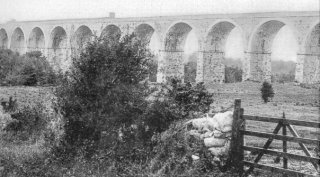Benedict Arnold is infamous in American history as that country’s most renowned traitor. Unfortunately Newry is better remembered for our home-grown traitors than for our several heroes. This article focuses on two of the more influential traitors. It is the present author’s opinion that their betrayal is comparable with that of Arnold’s.
Benedict Arnold was a military leader of the revolutionary army who until he was accidentally exposed in 1780, was planning to surrender West Point to the British. The treachery of Samuel Turner and of Isaac Corry was of no less import in our own history. All three traitors, operating at the close of that ill-fated century escaped the retribution they so richly deserved and went on to promote their own careers.
The reader will note that these men were from opposite ends of the political spectrum. The treachery of the first brought to naught the actions and ideals of the United Irishmen in this whole area – one that, through the careful cultivation of such leaders as Wolfe Tone and William Drennan over the previous decade, had become a hotbed of the revolutionary movement. Corry’s treachery propelled our country into the disastrous Union that was to bedevil our history for the next two centuries and bring hardship to many millions here and in exile in America and other foreign fields.
It is important to place the era, the closing decades of the eighteenth century in context. Britain, though the strongest nation on earth, was almost constantly at war and under attack from traditional enemies like France and Spain, and from former friends such as the newly freed American colonies. Spain declared war on Britain in June 1779. The American pirate John Paul Jones sailed round the British islands in August of the same year, instilling terror. The French Revolution was fomenting and Britain was about to enter decades of war with that country. It was about this time that our coastline was ringed with the Martello Towers that contained braziers on top to quickly spread from place to place the word of any invasion from sea.
Irish revolutionaries – composed mainly of non-conformist Protestants whose ideas of a secular, radical movement in consort with the ideals of the continentals greatly threatened the British Establishment not just in Ireland but in England too – were growing in influence in commerce and trade and constituting a real threat.
Their ideals were betrayed by Samuel Turner.
***************
Samuel Turner from the Glen, Newry was a fellow student at Trinity with the acknowledged leader and founder of the United Irishmen movement, Theobald Wolfe Tone. He reached a high position in the Northern Directory from which he was entrusted with the task of negotiating aid from sympathetic revolutionary governments abroad. He went to Hamburg where he kept in contact through the good offices of, and at the home of, the wife of the revolutionary leader Lord Edward Fitzgerald. The truth of his double agent role did not emerge until a century later. Turner was betraying his colleagues’ secrets and plans and keeping the British up to date with a list of the names of his political friends.
Edward Fitzgerald had served in the British Army against the revolutionary American colonists. On his return to Ireland he was elected member for Athy, in 1783, to the ‘patriot’ Irish parliament in Dublin (a parliament which by the way, had Isaac Corry as the member for Newry – but that is our next story). However in 1796 he joined the United Irishmen. He attempted to arrange a French invasion of Ireland in support of their proposed rebellion. However the plot was betrayed. Fitzgerald was seized in Dublin and as a direct result of injuries sustained in resisting his arrest, he died.
The informer’s word led, back home, to the mass arrest of numerous United Irishmen including many prominent Protestant merchants. These included John Gordon, Isaac Glenny, John Melling, Robert Maxwell, James Jones and Peter Lacey. The Rev. Boyle Moody, a local Presbyterian minister, was arrested and tortured to death. John Gordon was released after a desperate appeal to the authorities in Belfast by his wife. The tail of the gallant steed which carried her there and back is preserved in the Town Hall boardroom.
Not all those arrested were tortured or executed. They represented a large part of the commercial and industrial lifeblood of the town and the British were reliant on their support for future home defence as well. It was necessary merely to institute a reign of terror to impress the foolhardiness of further resistance. The Welsh Regiment known colloquially as the Ancient Britons was the tool of this terror. In South Armagh it was the Killeavy Yeomanry under Captain Seavers.
There was a massacre at Ballyholland at the home of the Presbyterian minister Hodges. ‘Fire was opened on practically every person encountered or they were cut down with sabres’, records the historian Lecky. ‘Nearly every house was burned down including that of the Revenue Officer. Neighbours who rushed to extinguish the fire were killed or seriously injured, including women and two children. An old man who fled for safety to some rocks was followed and though pleading for his life had his head cut off with a sabre.’ More atrocities are recorded at Acton, Ballyargan, Culloville, Forkhill, Rathfriland and other places. The death of Thomas Dunne of Rostrevor was especially harrowing. This will be recorded here at a later date.
It is notable that most arrested merchants escaped unscathed. One man, John Melling later served as Town Clerk from 1828 to 1835. As in most conflicts it was the poor and less well-placed who suffered most. Cochran (of the Road) had fought at the Battle of Ballynahinch in 1798. Returning he offered
